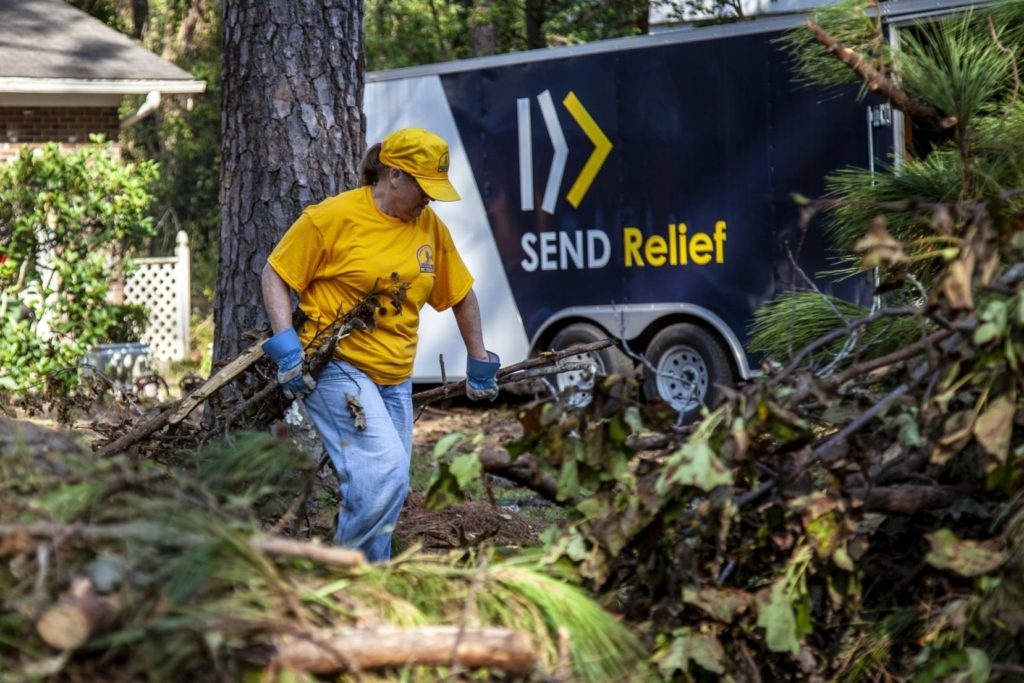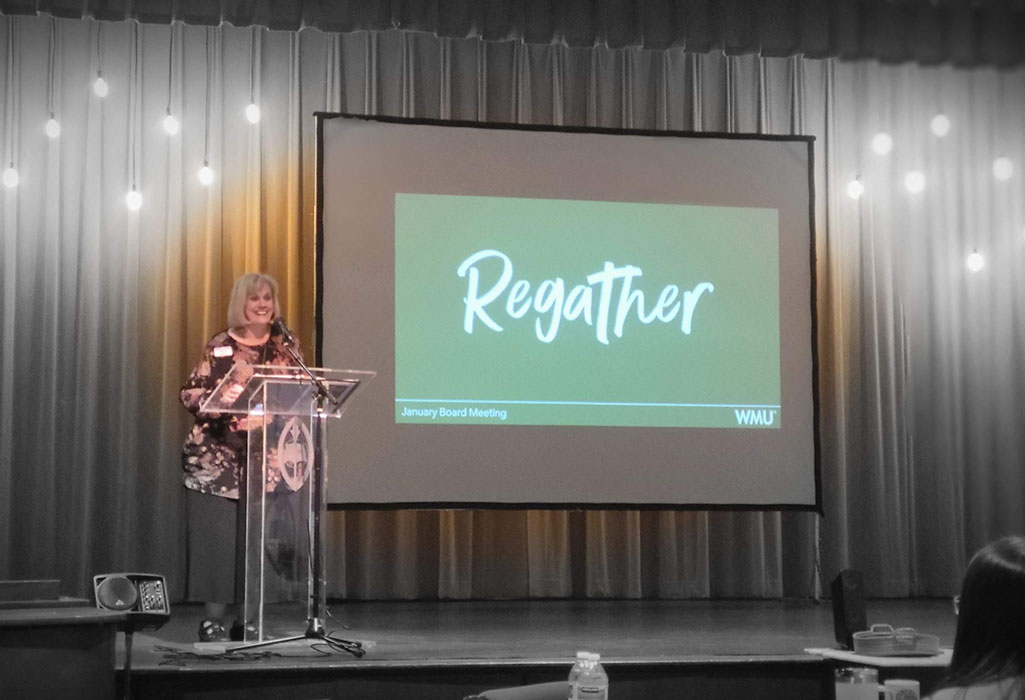
SOUTHEAST ASIA (BP) – International Mission Board missionary Nathaniel Creed stood at the bedside of Henry, a devout Muslim. He’d spent the last five years sharing the gospel and his life with the man. Now, Henry was dying of cancer. It was in his small intestine and spreading.
As Nathaniel visited the declining Henry in his home, he took the opportunity to share the biblical story of the paralytic man whose friends took him through the roof of a house to see Jesus.
“I told him, ‘Henry, God can do that for you. Jesus can do that for you, too. If you’ll believe in Jesus, He can forgive you and heal you,’” Nathaniel recounted.
“You know Nathaniel, right now I’ll take any prayer,” Henry responded. This man, hostile to the gospel and all things Christian, allowed this Western Christian to pray over him in Jesus’ name.
“I’m in a desperate way,” he confessed.
Before he’d been diagnosed with cancer, the two became friends, bonding over their shared fishing hobby.
Nathaniel and Elizabeth Creed, along with their five children, live in a predominantly Muslim culture in Southeast Asia. More than a million people live in their area. For the last six years, the Creeds have been the only IMB missionaries among them.
The people there are set in their religion. Secret police seek out those who are trying to proselytize. The government is run by those who adhere to sharia law. While it’s permissible to be a Christian in this area, it is not legal for nationals.
The overwhelming majority of the population is lost. Most have never heard the gospel. And for those who have, openly sharing comes at a great cost. Even the area itself is hard to access, off the beaten path.
But the Creed family planted their lives among these people. Nathaniel started a fishing club, and he found it was a fantastic way to connect with people.
Through this club, Nathaniel met Henry. While the two men immediately bonded over their love of fishing, Henry was hostile to Nathaniel’s religion. He believed, as most devout Muslims in his region do, that Christianity brought no good with it. Christianity is viewed there as “the great Satan,” and American Christians are perceived as bringing with them Western culture, riddled with pornography, alcohol use and all sorts of vices.
Nathaniel was Henry’s first Christian friend. Over the years, Nathaniel used their fishing excursions to share a few stories from Creation to Christ. He shared other stories too, highlighting New Testament truths about love and justice for his very moral, yet very lost Muslim friend.
“I’m always mad at you,” Henry said. “Every time I go to mosque and pray after we fish, I have to pray five times in order to get my anger away from you.”
Something about Nathaniel’s faith unsettled Henry. Yet, for five years their friendship persisted, bound by their shared love of fishing. Their conversations shifted to deeper topics about life and marriage and all the tough stuff that comes along, such as this cancer.
That afternoon in Henry’s home, Nathaniel prayed openly for his healing and for him to come to faith, all in Jesus’ name. Two months later, Henry was in the hospital, his body withering away. He couldn’t eat. He wasn’t even healthy enough to undergo surgery.
Nathaniel knew Henry’s time on this earth was ending. He prayed for God to help him communicate with Henry all the things he had on his heart in their next meeting.
A week later, he came to the hospital just as visiting hours ended. Not allowed to go in, Nathaniel went to the window. “Henry, Henry,” Nathaniel called.
“Is it time?” Henry asked, looking his American friend in the eye.
Nathaniel replied, “Yes, it is time. God is telling me your time is short. You need to accept Jesus.”
The next day, during visiting hours, Nathaniel repeated his message that the man’s time was short, and the gospel was the only thing he needed.
“No, no, no,” I want to go fishing with you, the dying man said to Nathaniel, not ready to die.
Nathaniel expressed his love to the man and asked to pray with him again.
“He rejected Christ in those moments, but he took a step forward,” Nathaniel said, his voice cracking. “God has His way of doing things outside of our interactions, but I can’t believe that if he didn’t have more time, that he wouldn’t have come a few more steps closer.”
The story continued, with the dying man humbly asking the missionary to massage his feet, something that is completely out of character for this culture.
As the missionary poured oil on his feet, he was overcome with emotion, tears streaming down his face.
“Out of all the people in this culture,” Nathaniel said later, “God loved Henry so much, that even though he was an enemy of God, God sent a missionary to massage his feet, sharing God’s love with Henry, even as he was about to die.
“That was just a beautiful picture [of] God saying to me, ‘I love this culture and I’m going to send laborers.’”
Two days later, Henry died. As far as Nathaniel knows, Henry rejected Christ.
There are still more in his fishing club who have heard the gospel and need to accept it, Nathaniel said. He encourages Southern Baptists who hear this story to consider if God is calling them to reach the nations.
Maybe you’re like Nathaniel and have a passion for fishing that you could use to create gospel access — short term or long term. Maybe you love to teach languages and want to use English as a Second Language as a platform to take the gospel to the nations. Maybe you’re a medical professional and want to bring hope and healing to a lost world. You can partner with the IMB to reach the nations together.
Some names may have been changed for security purposes.
(EDITOR’S NOTE – Myriah Snyder is senior writer/editor for the IMB.)


